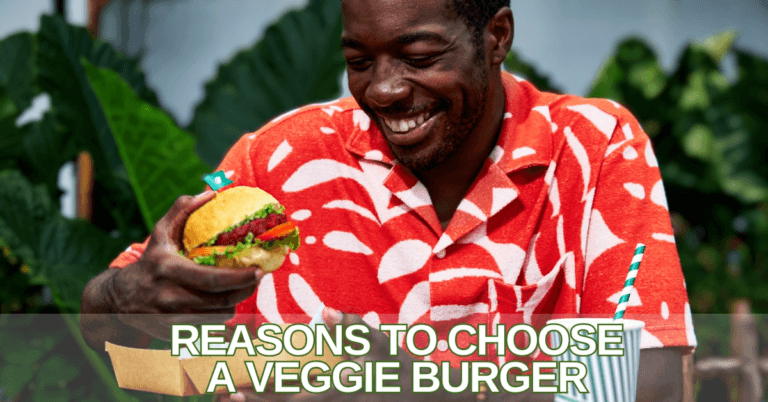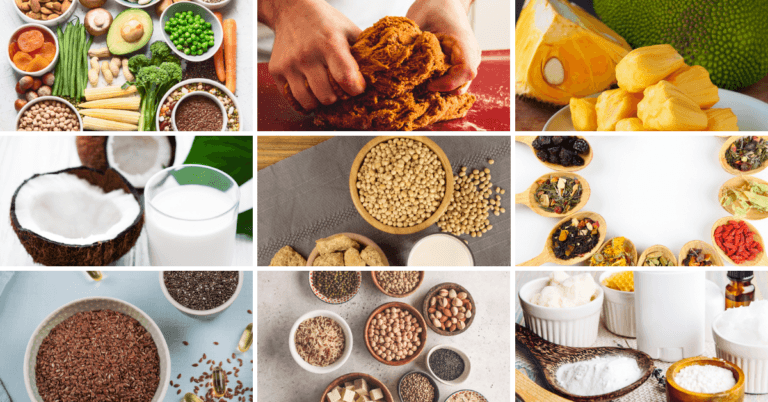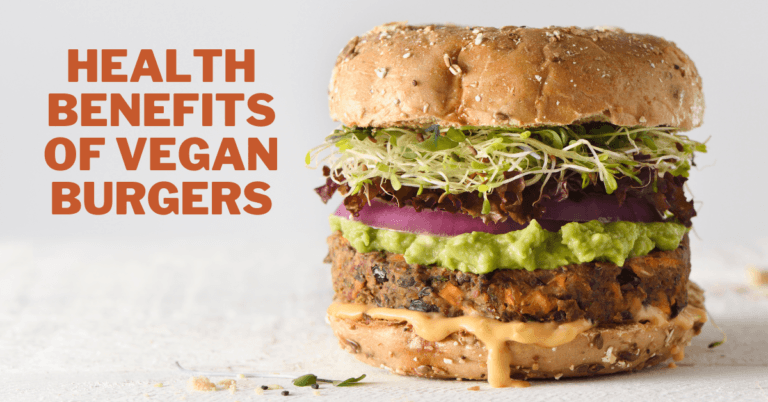Vegan Meat vs Real Meat
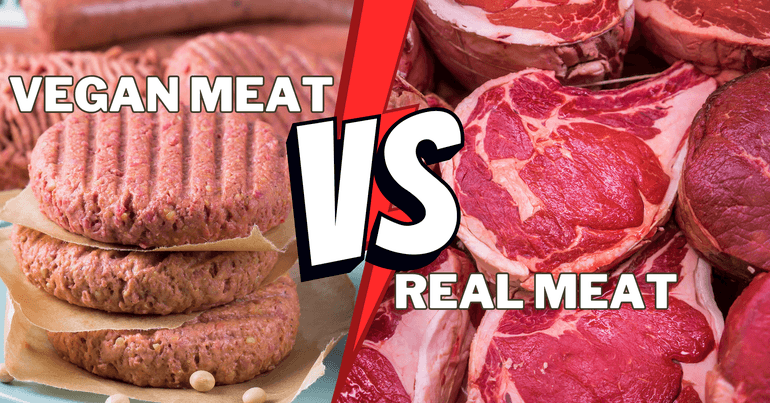
Vegan Meat vs Real Meat
The debate over the taste and texture of vegan meat versus real meat has ignited a culinary conversation that resonates with staunch carnivores and dedicated plant-based enthusiasts.
As dietary preferences and environmental concerns continue to shape how we approach our meals, exploring the flavours and mouthfeel offered by these two distinct culinary realms becomes all the more relevant.
Beyond the basic distinction of ingredients lies a deeper examination of how modern food science and innovative cooking techniques have bridged the gap between traditional meat and its plant-based counterparts.
Join us through the tantalizing tastes and captivating textures that define this flavorful discourse.
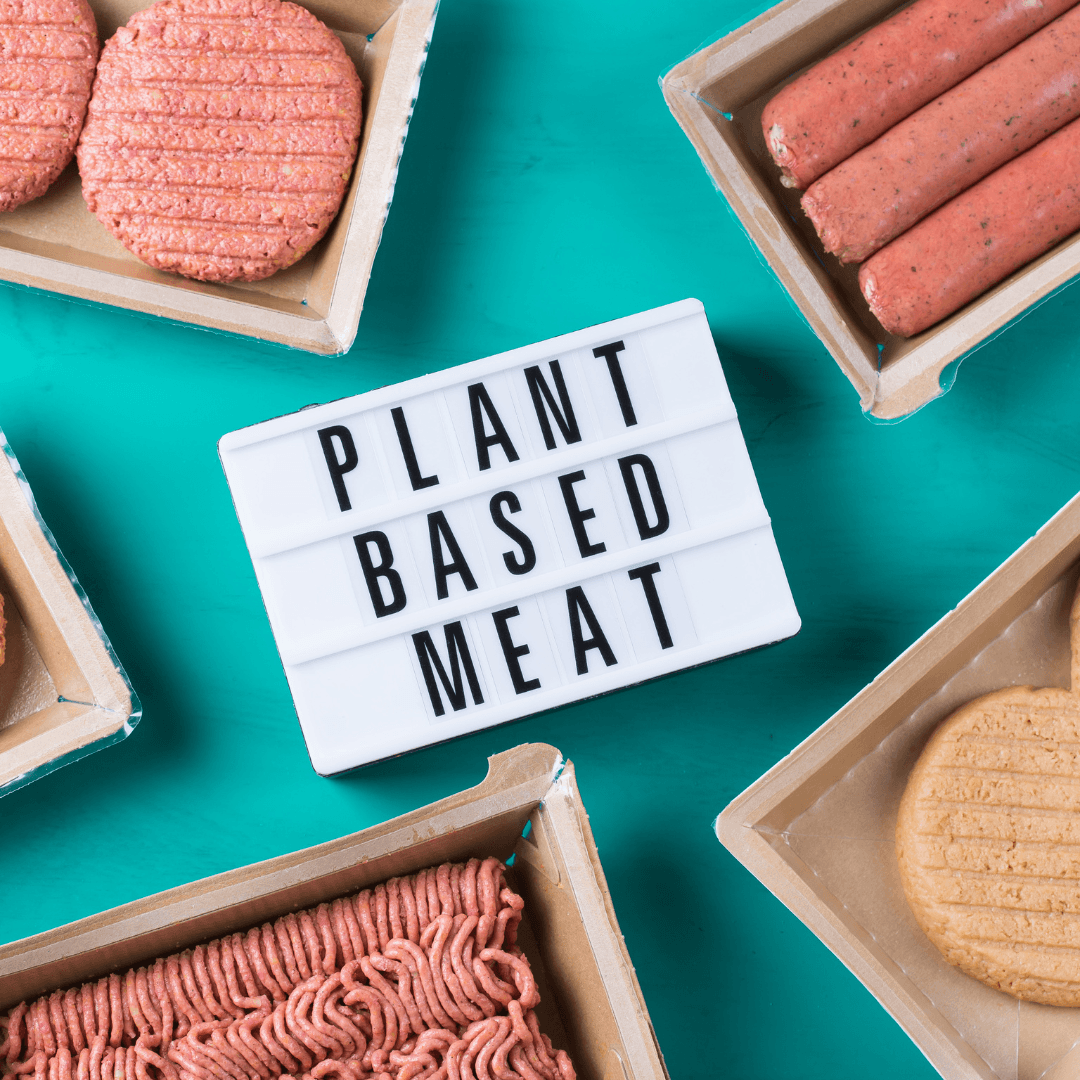
What Is Vegan Meat?
Vegan or plant-based meat alternatives are crafted through culinary artistry and scientific innovation.
The process typically involves carefully selected plant sources that mimic real meat's taste, texture, and appearance.
One common approach is using proteins extracted from legumes like peas, lentils, and beans or grains like wheat and soy.
These proteins serve as the foundation for the meat alternative. Various techniques, such as extrusion, blending, and hydration, create a fibrous and chewy structure reminiscent of animal meat to achieve the desired texture.
Flavour development is another crucial aspect. Natural flavours from plant extracts, spices, and herbs are often used to recreate the distinctive tastes associated with different types of meat.
Additionally, umami-enhancing compounds like amino acids, especially glutamic acid, contribute to a more savoury experience.
For the characteristic “juiciness” found in meat, plant-based oils, such as coconut, sunflower, or canola, are incorporated.
Colour plays a significant role in making vegan meat visually appealing. Beet juice, for instance, is a common natural dye used to replicate the reddish hue of cooked beef.
Using binding agents like methylcellulose or carrageenan helps maintain the structure and prevent crumbling during cooking.
Advanced technologies also contribute to the creation of vegan meat. 3D printing is being explored to layer plant-based ingredients, creating intricate textures precisely.
Fermentation, a process involving microorganisms breaking down plant materials, is harnessed to develop flavours and textures similar to animal meat.
Overall, crafting vegan meat involves carefully orchestrating plant-based ingredients, culinary expertise, and scientific ingenuity to provide a product that satisfies the taste buds and the sensory experiences associated with traditional meat consumption.
As demand for sustainable and ethical food choices grows, the continued innovation in vegan meat production is poised to reshape the culinary landscape.

Taste And Texture Of Vegan Meat vs Real Meat
Picture a sizzling barbecue grill adorned with an array of patties, some crafted from hearty plant-based ingredients while others bear the traditional marks of animal-sourced goodness.
As the aroma of grilling fills the air, a compelling question arises: Can vegan meat truly rival the cherished taste and texture of its carnivorous counterpart?
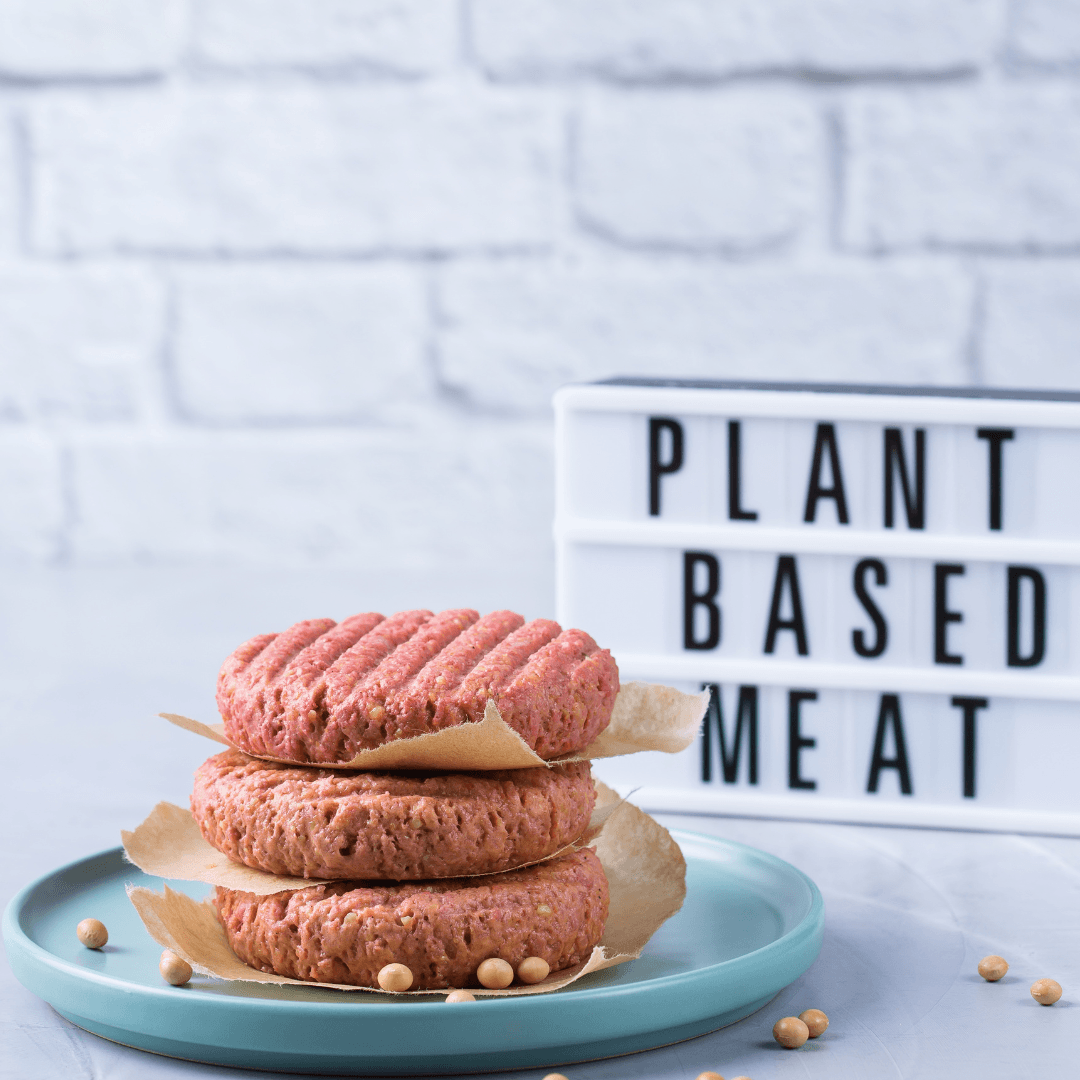
1. Texture Variety
Vegan meat has gracefully shattered the conventional notion that meat alternatives are synonymous with a monotonous texture.
A symphony of textures has emerged through innovative plant-based ingredients and clever processing techniques, offering a delightful spectrum of culinary experiences.
Imagine sinking your teeth into a juicy burger, its texture mirroring that of its animal-derived counterpart achieved through meticulously crafted combinations of proteins like soy, pea, or wheat.
Beyond burgers, vegan meat expands to embrace tender sausages that promise a satisfying bite, achieved through the artful blending of legumes and spices.
Plant-based ingredients' versatility extends to crispy chicken nuggets and meatballs that retain their innate succulence, weaving a tapestry of textures that appeal to even the most discerning palates.
This evolution results from the ceaseless ingenuity that intertwines culinary expertise with cutting-edge food science, giving rise to a plant-based symphony of textures that are as diverse as they are delectable.
Whether it's the toothsome chew of seitan or the tender yielding of a jackfruit-based pulled “pork,” the world of vegan meat has risen to the challenge, delivering an orchestra of textures that harmonize innovation, taste, and the sheer joy of indulgence.
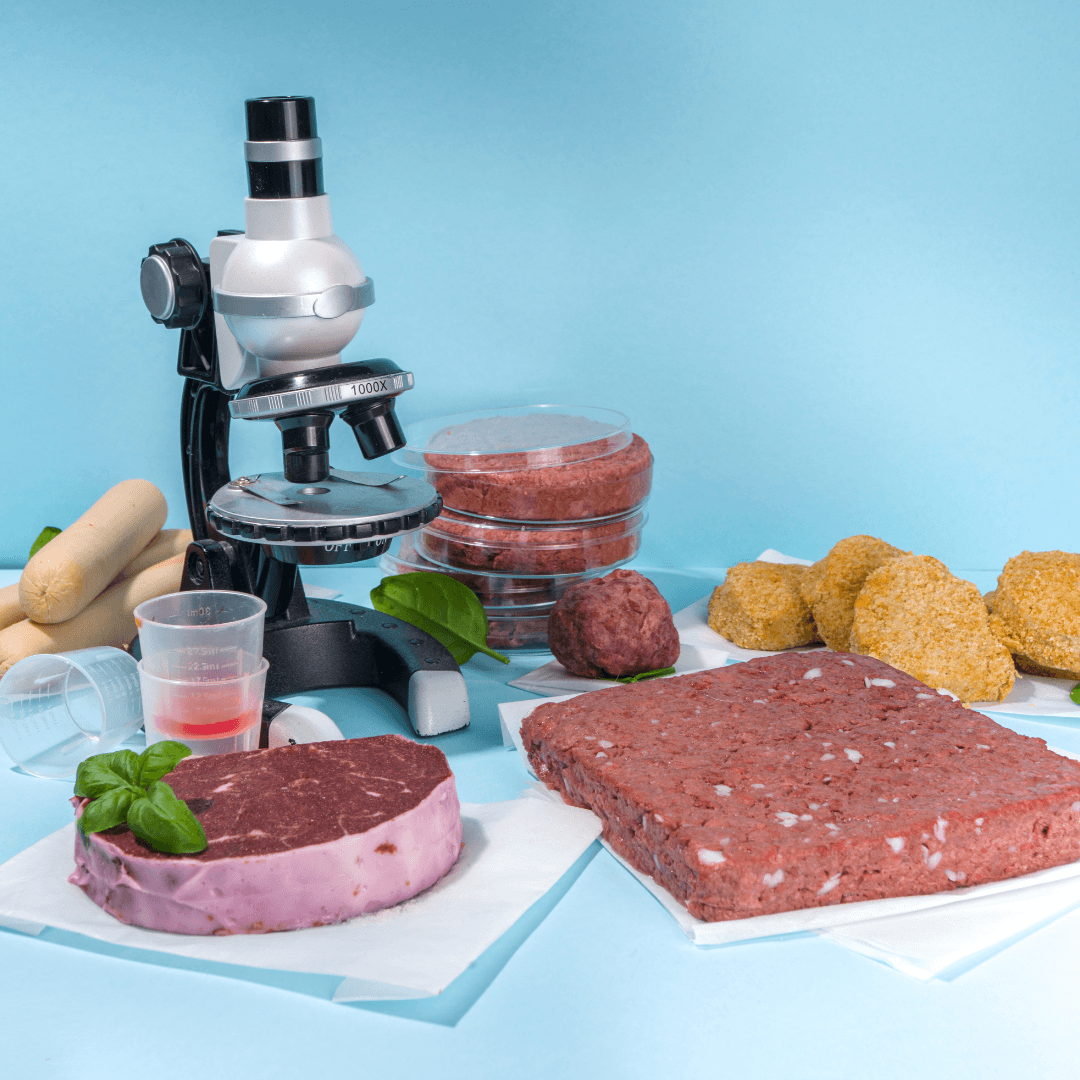
2. Meat-Like Resemblance
The art of plant-based meat has reached extraordinary heights in replicating the texture of real meat, resulting in products that truly boggle the senses.
Advancements in food science and culinary creativity have led to remarkable breakthroughs, enabling plant-based alternatives to emulate the satisfying “bite” and mouthfeel of traditional meat.
Take, for instance, the intricate dance of proteins and fibres in a vegan burger patty – a synergy that mirrors the juicy resilience of a beef patty.
Using legume proteins, such as soy or pea protein, intertwined with binding agents and flavour-enhancing ingredients mimics meat's firm yet tender texture.
Similarly, innovative approaches to crafting sausages involve blending wheat protein, herbs, and spices to recreate the signature snap and juiciness of the original.
This process extends to nuggets and meatballs, where meticulous combinations of plant-derived elements give rise to products that mirror traditional meat's physical attributes and satiating sensation.
The result is a sensory experience that challenges preconceived notions, proving that the world of vegan meat is not just about taste but an immersive journey of textures that evoke a familiar, yet uniquely plant-based, satisfaction.
These plant-based triumphs stand as a testament to the ingenuity of culinary science, promising a world where the boundaries of texture are elegantly transcended in the pursuit of delectable, sustainable, and ethical dining experiences.
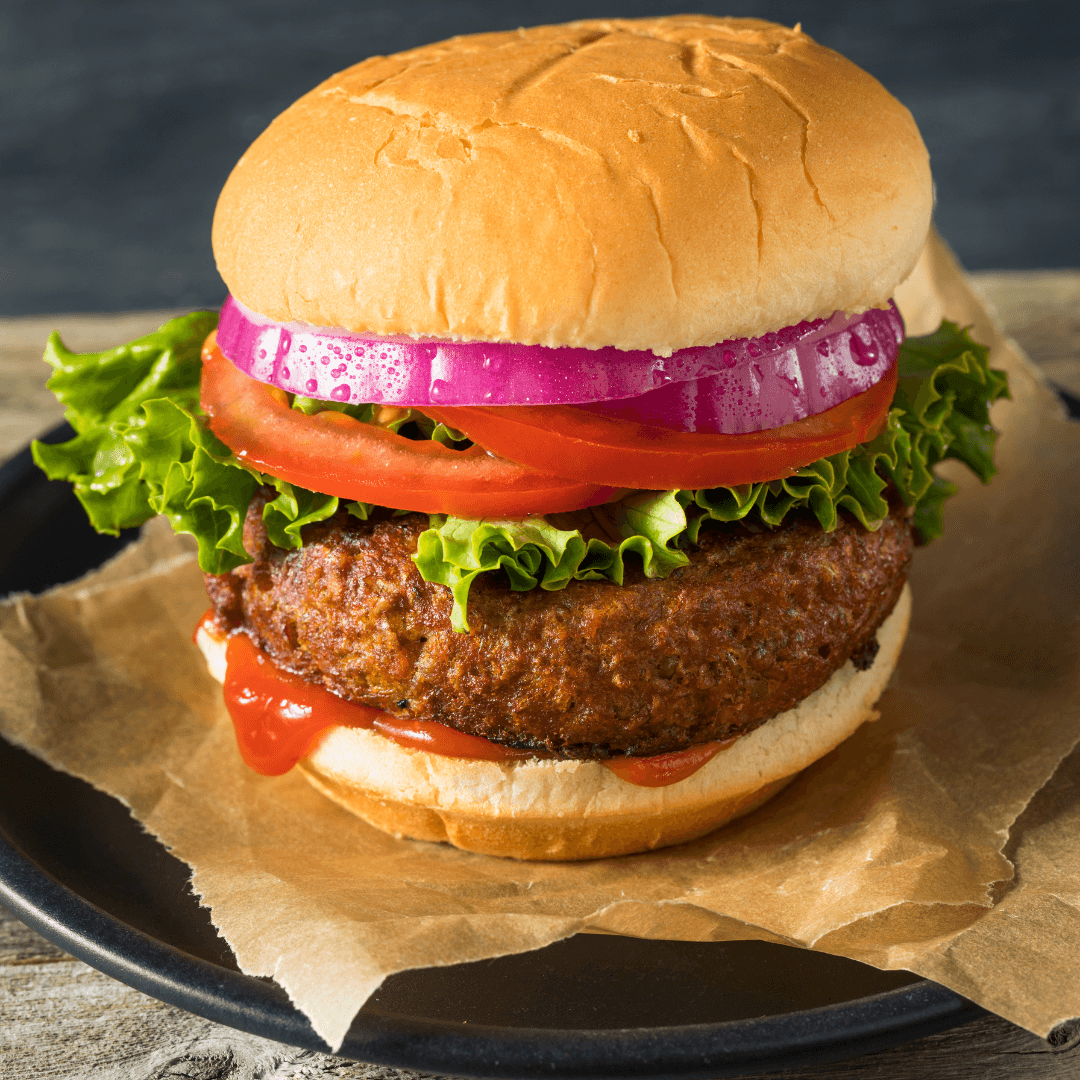
3. Flavour Innovations
Vegan meat has evolved into a realm of flavour innovations that ingeniously replicate the rich umami and savoury notes inherent in traditional meats.
Through a symphony of natural flavour enhancers and thoughtfully curated seasonings, plant-based alternatives masterfully capture the essence of meaty indulgence.
Umami-rich ingredients like mushrooms, tamari, and miso play pivotal roles in imitating the deep, earthy flavours of animal-derived proteins.
These ingredients offer a bridge to the complex taste profile that has long been associated with meats.
Moreover, incorporating fermentation processes, like those used in traditional meats, brings a depth of taste that resonates with familiar palates.
Creative blends of herbs and spices, such as rosemary, thyme, and smoked paprika, elevate the sensory experience to new heights, all while ensuring that the ethical and sustainable essence of plant-based sourcing remains intact.
The result is a culinary masterpiece that entices the taste buds with various flavours that mirror and often rival those found in conventional meat dishes.
As a testament to the dedication of modern gastronomy, vegan meats prove that the realm of taste knows no bounds, offering a diverse and satisfying spectrum of flavours that transcend dietary preferences and capture the heart of culinary pleasure.

4. Juiciness And Moisture
The distinction between vegan meat products and their animal-based counterparts has undergone a transformative evolution in the realm of juiciness and moisture.
Traditionally, the perception may have lingered that plant-based options lacked the succulent juiciness associated with meats.
However, modern advancements in vegan meat crafting have shattered this notion. Through innovative techniques and meticulous formulation, plant-based alternatives have triumphantly conquered the challenge of delivering satisfying levels of juiciness and moisture.
Key players in this transformation include ingredients like coconut oil and beet juice, which lend their natural richness to mimic the moist texture of meats.
Additionally, the artful combination of various plant-derived proteins, such as soy, wheat, and pea proteins, contributes to a texture that can remarkably mirror the tenderness and juiciness of animal-based proteins.
Culinary techniques, such as marination and cooking methods like sous-vide, have also been harnessed to infuse vegan meats with delectable moisture and depth of flavour.
As a result, the once-perceived divide between succulent bites of traditional meats and their plant-based counterparts has dwindled, paving the way for a new era where juicy, flavourful, and satisfying experiences are not confined to animal-derived sources.
In this culinary narrative, vegan meats have emerged as champions of innovation, ensuring that every bite explores indulgent textures and succulent moisture that delight the senses and challenge preconceived notions.

5. Dry Myths To Juicy Realities
The perception of juiciness and moisture in plant-based meat products compared to animal-based counterparts has evolved dramatically, debunking the notion that vegan options are inherently dry or lacklustre.
In the past, plant-based meats were occasionally criticized for their potential to be less juicy or succulent.
However, recent advancements in food technology, coupled with meticulous craftsmanship, have revolutionized the landscape.
Today's vegan meat options are designed to emulate, and often surpass, the moistness and juiciness of traditional meats.
Innovations in ingredient selection, such as incorporating coconut oil, create a buttery mouthfeel and amplify the overall juiciness.
Furthermore, techniques like marinating, bringing, and using natural fruit and vegetable juices, like beet or mushroom extracts, enhance the moisture content.
These methods have not only debunked the misconception that plant-based meats are devoid of moisture but have also resulted in products that tantalizingly sizzle on the grill and provide a succulent flavour with every bite.
The commitment to achieving optimal juiciness and moisture levels in vegan meats is evident in their rising popularity and acclaim.
As a result, the line between the sensory experiences of traditional and plant-based meats has blurred, with vegan options emerging as champions of taste, tenderness, and overall enjoyment.
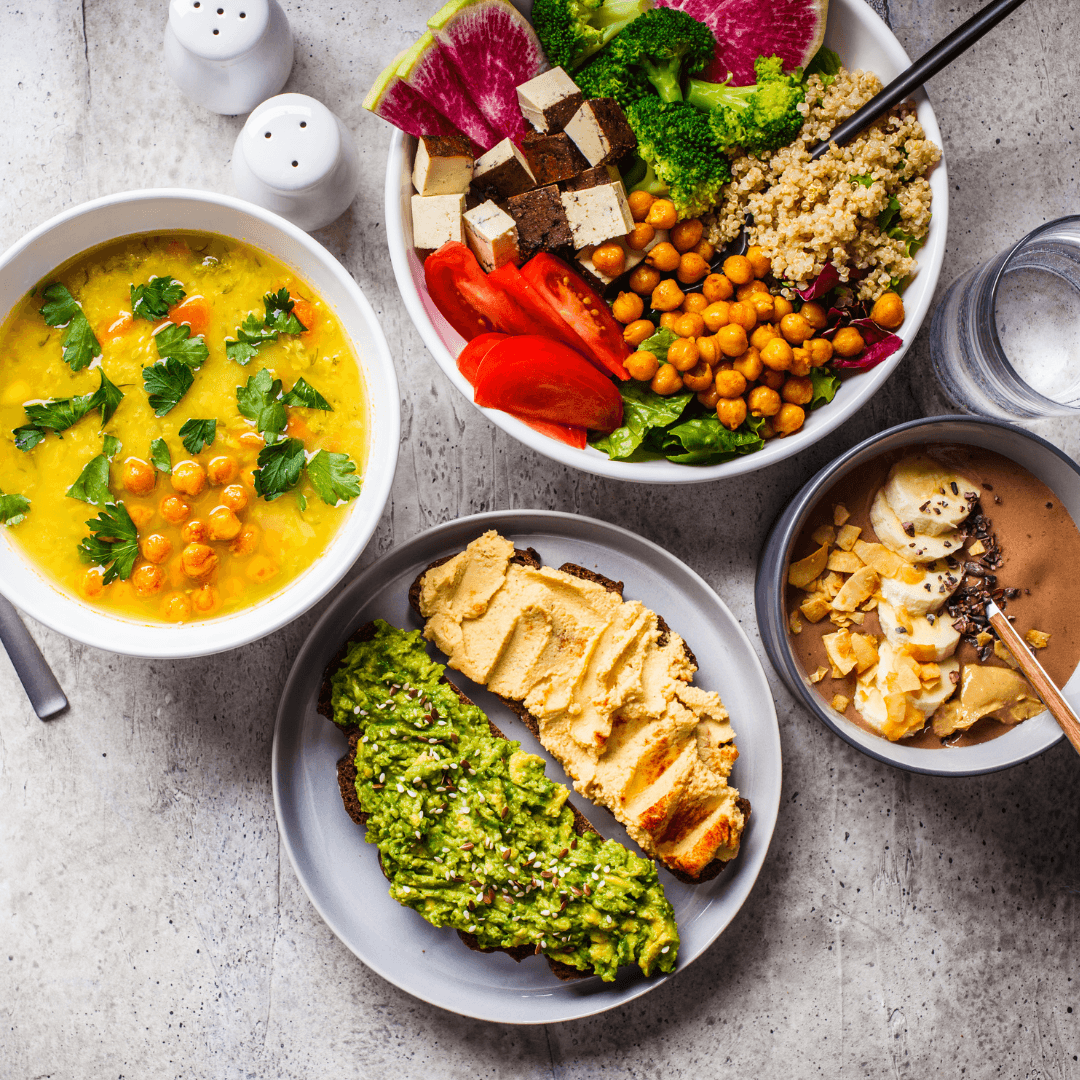
6. Cooking Versatility
The culinary versatility of vegan meat is a testament to its remarkable progress in achieving taste and texture akin to real meat across a spectrum of cooking methods.
One of the key triumphs of modern plant-based meats is their ability to maintain their integrity and palatability through a wide range of culinary techniques.
Whether it's the sizzle of a grill, the sputtering of a pan, the gentle heat of an oven, or the slow simmer of a stew, vegan meats exhibit impressive adaptability that mirrors their animal-based counterparts.
This adaptability is largely a result of meticulous formulation, which incorporates innovative plant proteins and binding agents.
These ingredients help vegan meats retain moisture and structure during cooking, ensuring they don't become rubbery or dry.
Moreover, natural flavours and seasonings enhance the depth of taste, even after exposure to high heat or extended cooking times.
As a result, vegan meats can be grilled to achieve those coveted grill marks, pan-fried to a crispy golden brown, baked to maintain succulence, or simmered in rich sauces without compromising their quality.
This cooking versatility makes plant-based meats suitable for various recipes, from sandwiches and burgers to stir-fries and curries.
It also underscores their capacity to integrate into diverse culinary traditions seamlessly. With each cooking method, vegan meats showcase their remarkable ability to mirror the sensory experience of traditional meats, making them an exciting and satisfying option for both experienced cooks and aspiring chefs seeking to explore new horizons in plant-based cuisine.

7. Customizable Tastes
The world of culinary exploration embraces a remarkable aspect shared by both vegan and real meat: the ability to be uniquely customized to cater to individual tastes.
Just as traditional meat can undergo a transformative journey through the artful application of seasonings, marinades, and cooking methods, vegan meats, too, offer a canvas for flavour innovation.
Seasonings and spices are indispensable, allowing individuals to craft a spectrum of taste profiles, from zesty and spicy to smoky and aromatic.
The creative use of marinades introduces another dimension of flavour, imparting depth and complexity that can rival their animal-based counterparts.
Whether it's a tangy teriyaki glaze, a robust BBQ marinade, or a delicate herb-infused mixture, vegan and real meats soak in these savoury accents to elevate taste to new heights.
Furthermore, the cooking techniques employed, whether slow roasting, grilling, or sautéing, further accentuate the customizable nature of these culinary canvases.
The sear of a grill imparts a rich smokiness, while a gentle braise might tenderize and infuse subtle flavours.
In essence, just as real meat enthusiasts relish the opportunity to curate taste experiences, those embracing vegan alternatives also embark on an exciting journey of discovery.
The realm of flavour customization transcends dietary choices, offering a dynamic playground for culinary enthusiasts to craft dishes that resonate with their preferences and whims.
Both vegan and real meat thus provide a realm of endless possibilities, ensuring that the joy of exploring flavours, textures, and techniques remains a universal delight, irrespective of the source of protein.
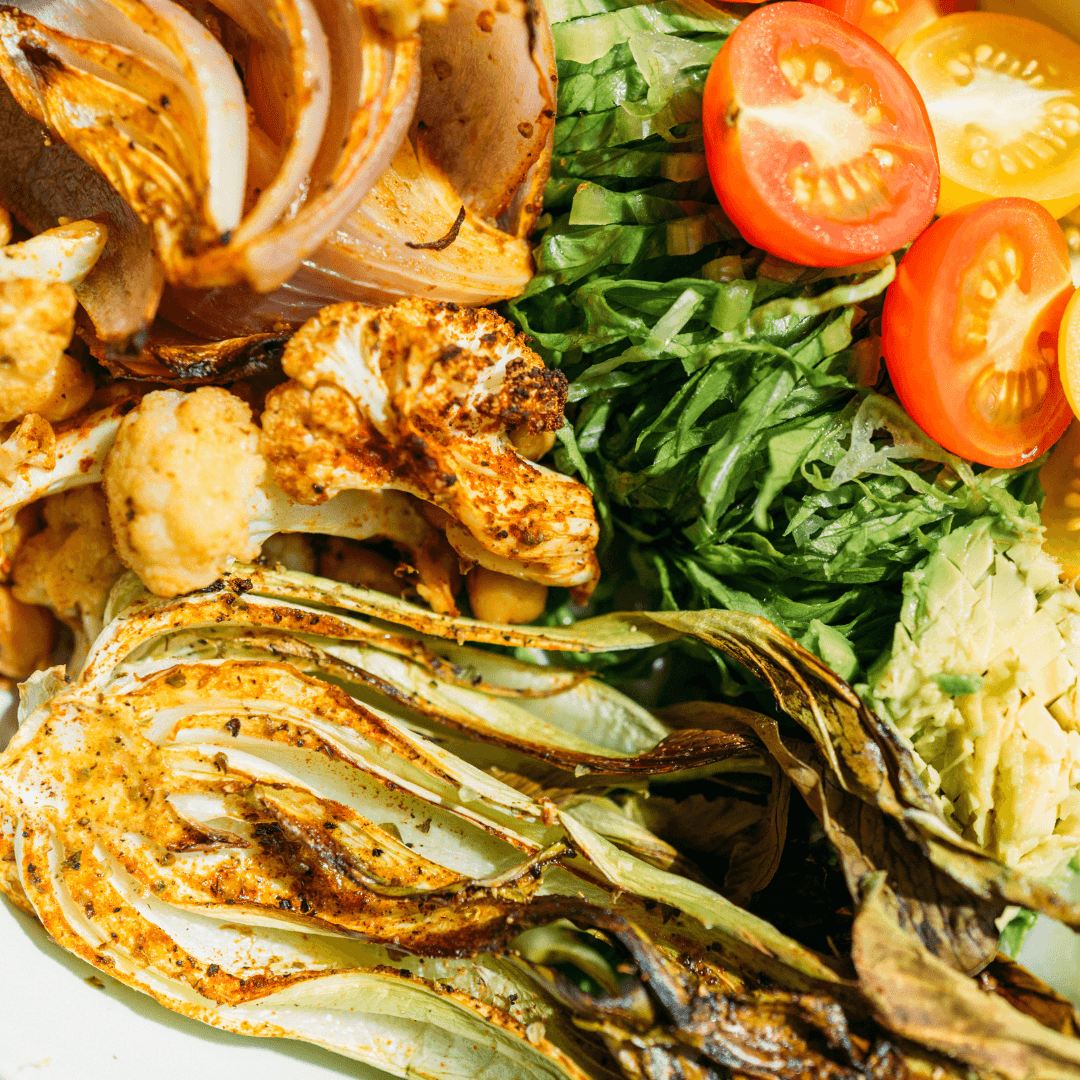
8. Health Considerations
The interplay of taste and texture in dietary choices is intricately woven into health considerations, guiding individuals towards options aligned with their well-being goals.
The dynamic duo of taste and texture often serves as a compass, directing those seeking health-conscious choices towards leaner and more wholesome alternatives.
The juiciness and tenderness inherent in real and vegan meat can influence decisions to opt for leaner cuts or plant-based options lower in saturated fats.
The satisfying mouthfeel of juicy bites entices individuals to explore leaner animal-based meats or plant-based proteins, steering them away from fatty cuts and contributing to their endeavour to reduce overall saturated fat intake.
Additionally, the ability of vegan meats to replicate the textural allure of traditional meat can bridge the gap for those looking to transition to a more health-focused diet.
The familiarity of textures enables a smoother transition, allowing individuals to adhere to dietary choices that align with their health objectives.
Essentially, the harmony of taste and texture bridges culinary satisfaction and mindful health considerations, facilitating a balanced approach where deliciousness and nutrition intertwine.
Whether the quest for a lower-fat burger or the aspiration to incorporate more plant-based protein for heart health, the symphony of taste and texture harmoniously guides individuals towards culinary decisions that nourish both body and palate.
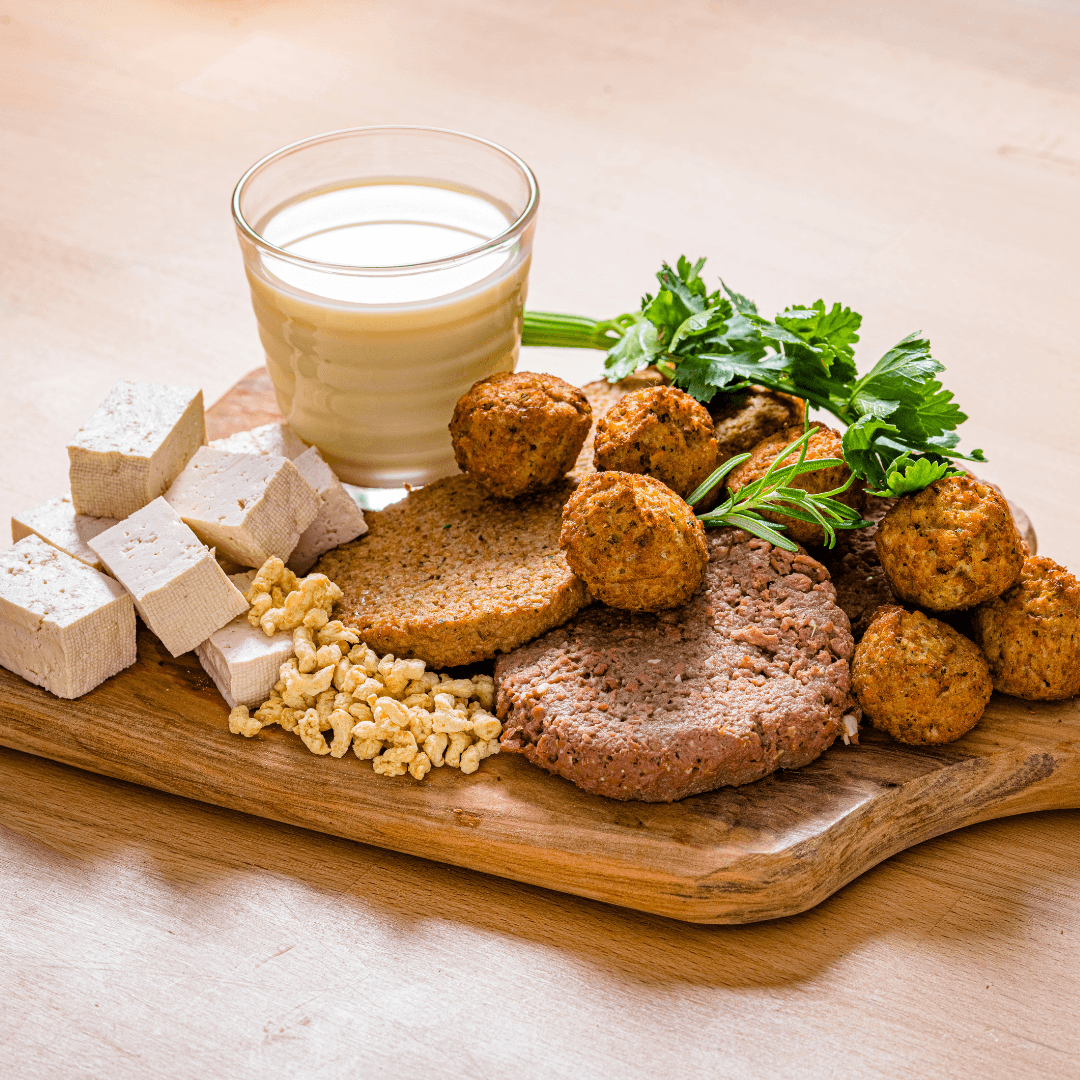
9. Consumer Insights
Consumer insights provide a captivating glimpse into the intriguing landscape of taste and texture preferences, shedding light on the evolving relationship between individuals and their culinary choices.
Surveys conducted among diverse populations reveal a spectrum of experiences and opinions.
Many respondents express amazement at the uncanny resemblance of vegan meats to their animal-based counterparts, noting how they effortlessly satisfy cravings for the traditional meaty “mouthfeel.”
Anecdotes narrate the delight of biting into a vegan burger with juices trickling down and sausages with a snap reminiscent of the real deal.
Moreover, personal narratives underline the adaptability of vegan meats, seamlessly integrating into familiar dishes while delivering a novel twist.
Yet, some consumers value the uniqueness of plant-based textures, appreciating the departure from conventional meat.
For some, the desire for leaner options and reduced saturated fat intake prompts them to explore the world of vegan meats.
This kaleidoscope of perspectives showcases a transformation in progress, where the marriage of taste and texture sculpts a new culinary narrative that caters to nostalgia and innovation.
These consumer insights collectively paint a picture of a dynamic and evolving culinary landscape, where taste and texture intricately weave a narrative that bridges the gap between tradition and the exciting frontier of plant-based alternatives.

10. Culinary Experience
The culinary journey of taste and texture extends beyond mere food consumption, embracing a symphony of sensory delights that define our gastronomic adventures.
Real meat invokes a multisensory spectacle, from the irresistible burger sizzle on a scorching grill to the mouthwatering aroma of a roast in the oven.
The allure lies in the transformative process as raw ingredients metamorphose into succulent masterpieces, releasing aromas that evoke memories and anticipation.
Equally enchanting is the artistry of vegan meats, which crafts its enchanting narrative. The grill bestows a bewitching char onto plant-based patties while sautéing ushers in the familiar sound of sizzling, resonating with nostalgia.
A hearty stew bubbling on the stove, fragrant with spices, echoes the comforting embrace of traditional dishes.
It's a culinary symphony where the richness of umami and the mastery of textures become the instruments that compose our gastronomic experiences.
From the satisfying crunch of a vegan schnitzel to the tender pull of a meatless meatball, each bite explores sensations that speak to both heart and palate.
The culinary experience transcends the plate, enveloping us in a sensory journey that reaffirms the profound connection between taste, texture, and the art of indulgence.
Conclusion
In the realm of taste and texture, the evolution of vegan meat has ushered in a new era of culinary possibilities.
As we conclude our exploration of the captivating interplay between plant-based and animal-derived options, it's evident that the boundaries of gastronomy are continually expanding.
The diversity of textures, the meticulous recreation of flavours, and the sensory symphony they collectively create are testaments to the remarkable ingenuity of food science.
Whether savouring the nostalgic comforts of traditional meats or embarking on the adventurous journey of vegan alternatives, the tantalizing world of taste and texture invites us to embrace a rich tableau of flavours, textures, and experiences.
It's a journey where culinary creativity knows no bounds and where the symphony of taste and texture resounds with every bite, reminding us that the pleasures of the palate are as diverse as the world they originate from.
I trust you enjoyed reading the article about Vegan Meat vs Real Meat. Please stay tuned. There are more blog posts to come very shortly.
JeannetteZ
Your Opinion Is Important To Me
Ideas? Thoughts? Questions? I would love to hear from you. Please leave your questions, experiences and remarks about Vegan Meat vs Real Meat in the comments below. You can also reach me by email at Jeannette@LivingTheVeganLifestyle.org.
>>>Click here to read more about Vegan Meat on Wikipedia<<<
Disclosure
This post may contain affiliate links. I earn from qualifying purchases as an Amazon Associate and other affiliate programs. Please read my full disclosure.



